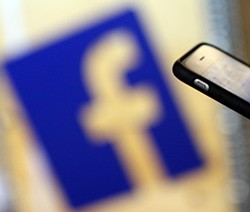Facebook Hoax Scares People With Adult Content
 Recent reports indicate that an old Facebook hoax/scare is making the rounds once again and people seem to be falling for it, again. The hoax in question has been around for years, first appearing around 2011 and slightly changing over time but retaining the same fake scare message. The big idea is to scare people into thinking hackers are using their account and are posting pornographic imagery and videos through it, but the adult content is not visible to the alleged victim, only to their friends.
Recent reports indicate that an old Facebook hoax/scare is making the rounds once again and people seem to be falling for it, again. The hoax in question has been around for years, first appearing around 2011 and slightly changing over time but retaining the same fake scare message. The big idea is to scare people into thinking hackers are using their account and are posting pornographic imagery and videos through it, but the adult content is not visible to the alleged victim, only to their friends.
Here is the text of the hoax warning in all its false glory:
URGENT WARNING TO ALL FACEBOOK USERS! FRIENDS BE CAREFUL! THIS IS SERIOUS! Hackers are posting sexual videos and pictures on your walls! You don’t see them, but your friends do, then it seems as if you posted it. If you see any such garbage posted under my name, please let me know because I DID NOT POST IT! Share this to protect yourself and your friends.
This could be circulated as either a dramatically colored image or as a plain text post. The common thread is that both versions urge everyone to share the post and create even more panic. First and foremost, there is no real threat or malicious files that go along with the current version of the scare campaign. Similar hoaxes have been used for spreading malware before, usually with a "helpful" malicious link in the post, but this is not the case now.
The hoax only aims to create panic and further spread false news, using social engineering and abusing the extent of platform knowledge of the average user.
Even though this current round of the "hackers are using you to post pornography" is a non-threat, it can still serve as a heads up for Facebook users to tighten their account's security. If you are still using "1234" as your password in 2019, you should consider immediately changing it to something new, in line with current best practices. A universal recommendation would be to have a healthy mix of upper and lowercase letters, numbers and symbols in your password. Password length also matters, with many platforms even requiring at least an 8-character password.
Facebook also has two-factor authentication settings that provide an extra layer of protection for your account. Users can choose to either receive an extra authentication code by text message or through a third party application. Once those settings are turned on, any unknown device that attempts to log into your account will need to provide the extra code which you alone receive on your mobile.
Leave a Reply
Please note that we are not able to assist with billing and support issues regarding SpyHunter or other products. If you're having issues with SpyHunter, please get in touch with SpyHunter customer support through your SpyHunter . If you have SpyHunter billing questions, we recommend you check the Billing FAQ. For general suggestions or feedback, contact us.